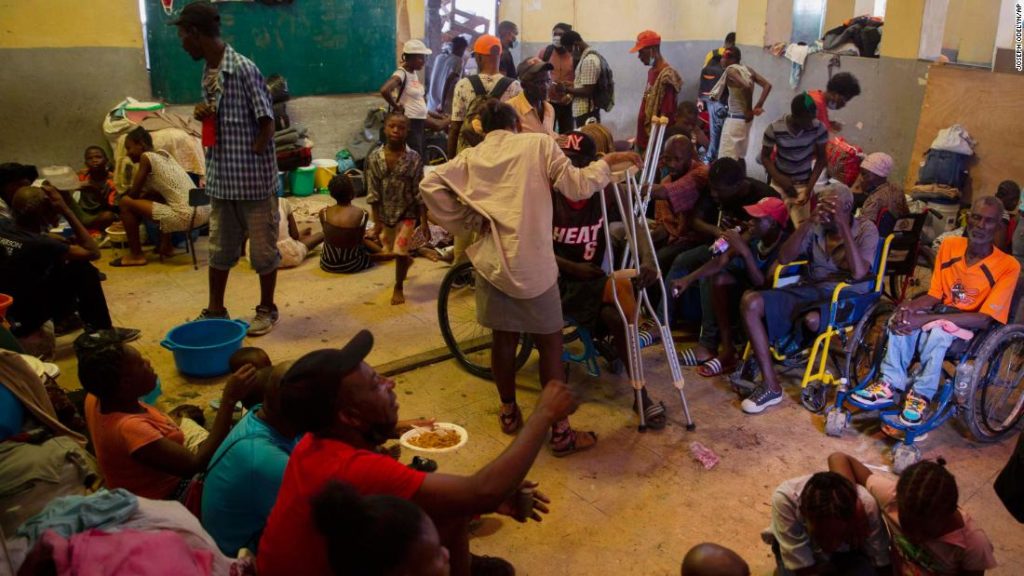“The government vehemently condemns these abominable actions and the blind violence which sows trouble and mourning in every level of the Haitian population,” read the statement, which added that the country’s national police and justice ministry had been instructed to bring the killers to justice.
“These odious crimes and reprehensible actions cannot go unpunished in a democratic society,” it said.
Criminal activity and territorial disputes between an estimated 95 armed gangs are causing “widespread panic” in Port-au-Prince, according to the United Nations Office for the Coordination of Humanitarian Affairs (OCHA).
Nathalie was one of the early victims, forced to flee with her baby earlier this year, after their home was set on fire during a battle between rival gangs, she said. She asked CNN to withhold her last name due to safety concerns.
Her husband had been killed while out buying groceries, the 27-year-old added, speaking to CNN from a temporary encampment where she has been living for months. More than 230 other families are also living in the camp due to similar reasons, she said.
Bruno Maes, UNICEF representative based in Port-au-Prince, told CNN his agency had collected “hundreds” of testimonies from other women and children whose homes were also burned down by armed groups.
Fighting has prevented aid agencies from directly reaching many of the displaced families sheltering by the thousands in churches and community centers, Maes said. Others are dispersed across the city.
For now, aid is being funneled through local networks, but he warns that humanitarian workers will need better access as the peak of the Caribbean’s hurricane season approaches.
Insecurity is having a ripple effect on national supply chains, Maes also said. “Gun violence is taking control of more and more space,” he said. Criminal control of major transit arteries in the country’s biggest city — which is also its main port — are slowing food and fuel deliveries to other parts of the country — a serious threat in a population where the UN estimates 46 percent of people are already “food-insecure.”
But for now, Haiti’s leaders appear unable to contain the violence — a fact that Nathalie, the displaced mother, describes as unforgivable. It’s all happening under the government’s watch, she said. “No one came to our rescue despite days of gang fighting.”
The Prime Minister’s office did not respond to a request for comment.
You may also like
-
Afghanistan: Civilian casualties hit record high amid US withdrawal, UN says
-
How Taiwan is trying to defend against a cyber ‘World War III’
-
Pandemic travel news this week: Quarantine escapes and airplane disguises
-
Why would anyone trust Brexit Britain again?
-
Black fungus: A second crisis is killing survivors of India’s worst Covid wave

